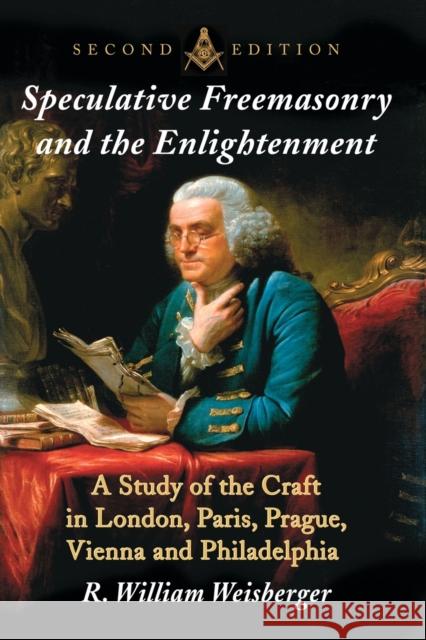Speculative Freemasonry and the Enlightenment: A Study of the Craft in London, Paris, Prague, Vienna and Philadelphia, 2d ed. » książka
Speculative Freemasonry and the Enlightenment: A Study of the Craft in London, Paris, Prague, Vienna and Philadelphia, 2d ed.
ISBN-13: 9781476669137 / Angielski / Miękka / 2017 / 240 str.
Speculative Freemasonry and the Enlightenment: A Study of the Craft in London, Paris, Prague, Vienna and Philadelphia, 2d ed.
ISBN-13: 9781476669137 / Angielski / Miękka / 2017 / 240 str.
(netto: 237,55 VAT: 5%)
Najniższa cena z 30 dni: 234,75 zł
ok. 13-18 dni roboczych.
Darmowa dostawa!
Freemasonry began with the guilds of stonemasons in the Middle Ages experiencing the decline of cathedral building. Some groups of "operative" (working) masons invited honorary memberships to boost their numbers. These usually highly educated new members practiced symbolic or "speculative Freemasonry." Through ritualistic teachings and social activities, the new Masonic lodges and learned societies offered their quickly growing numbers of Protestant, Catholic and Jewish members an understanding of deism, Newtonian science and representative government, and of literature and the fine arts. This comparative work describes how Masons on both sides of the Atlantic were, for the most part, either enlighteners, political reformers or moderate revolutionaries. Contrary to conspiracy theories, 18th century Masons gave minimal support to radical revolutionary ideas and leaders.











